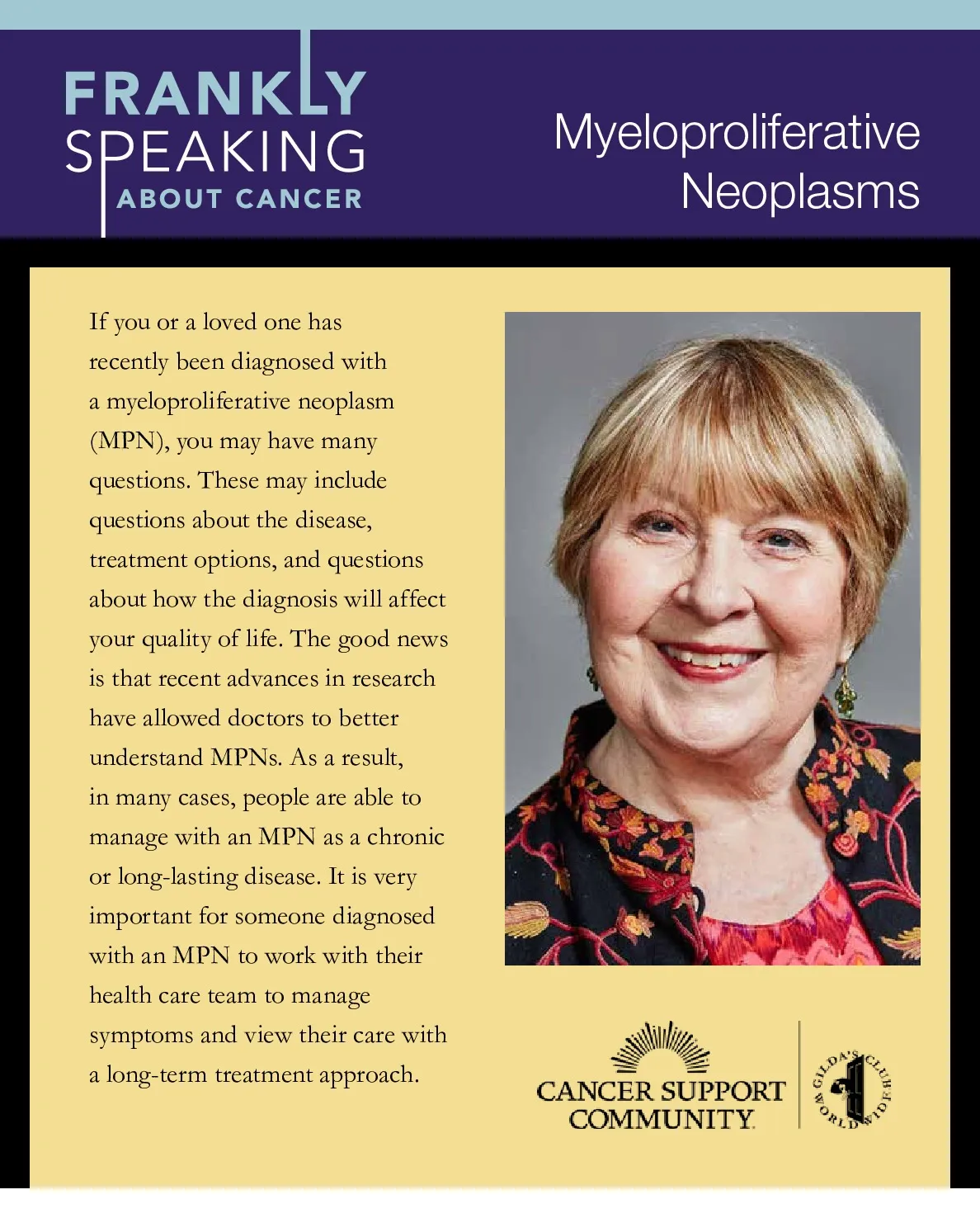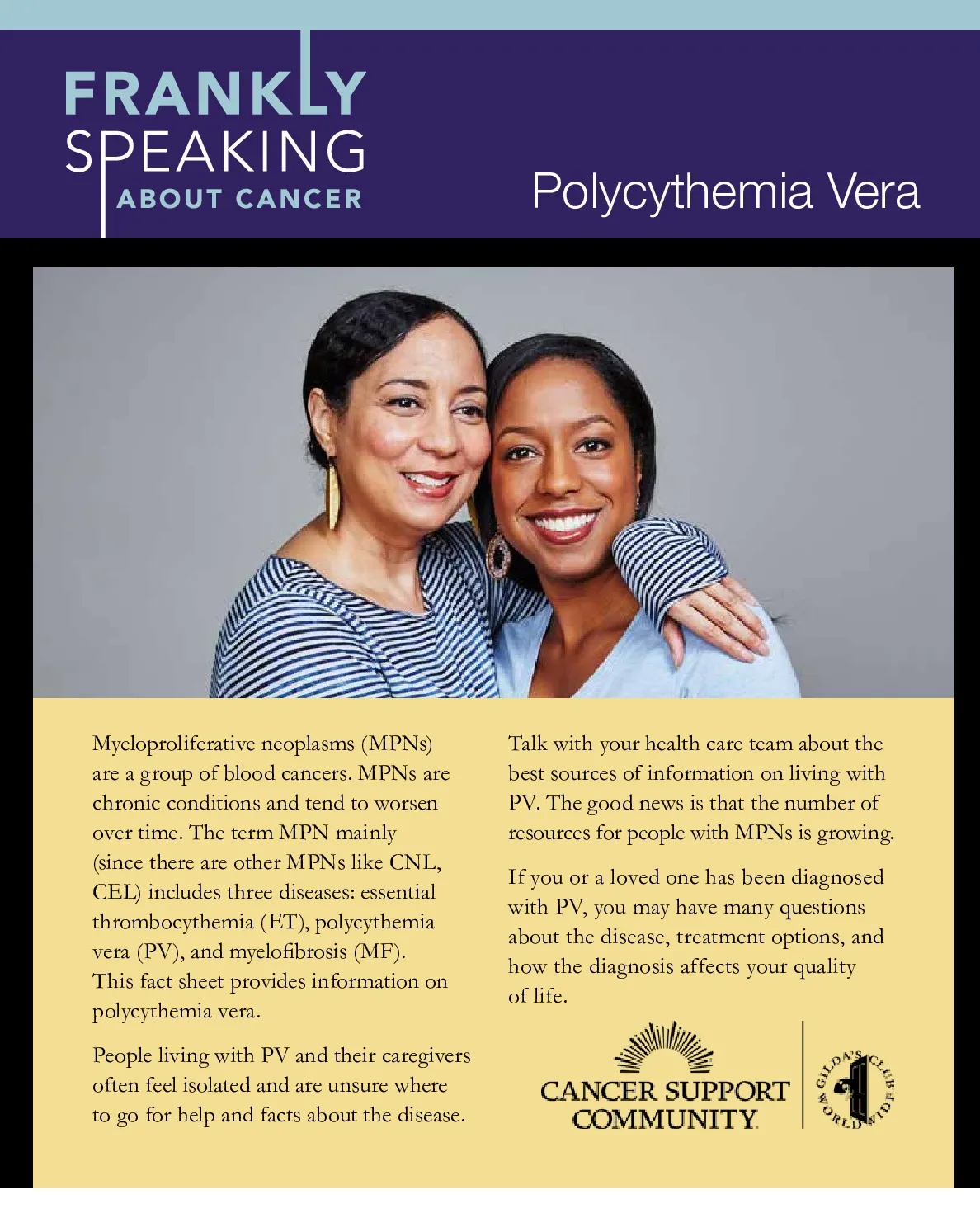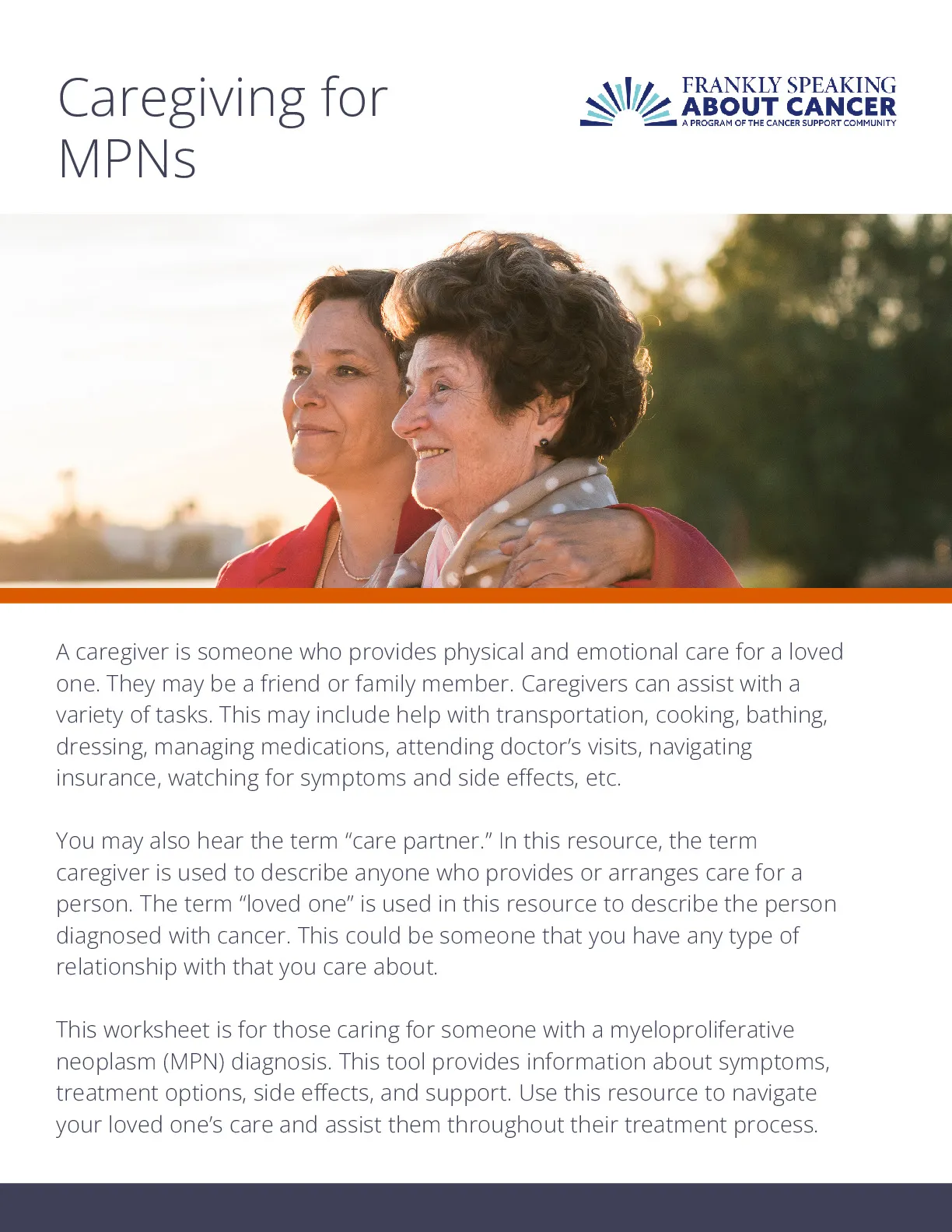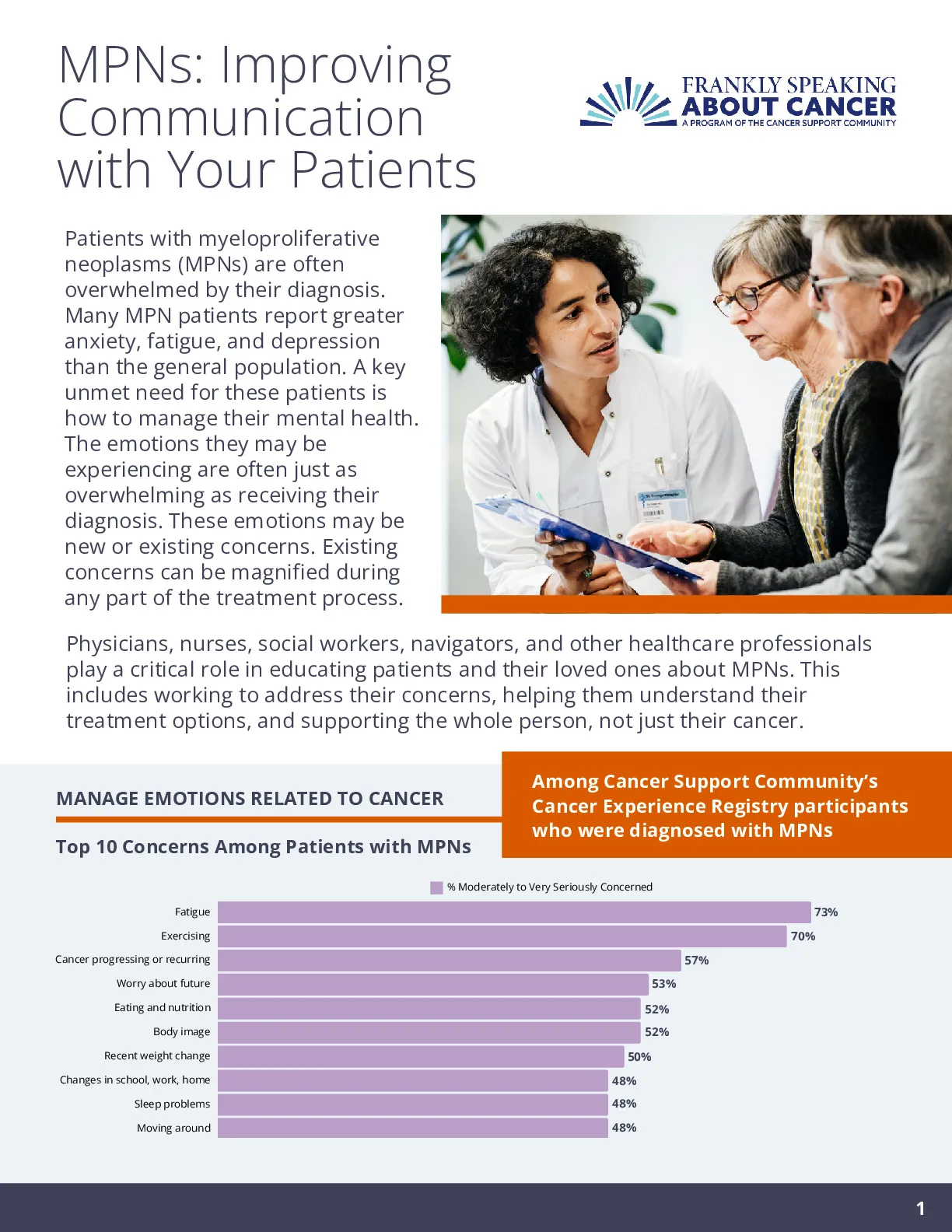Myeloproliferative Neoplasms (MPNs)
Table of Contents
Myeloproliferative neoplasms (MPNs) are blood cancers that occur when the body makes too many or not enough white or red blood cells, or platelets. To break down the term, “Myelo” refers to cells from the bone marrow. “Proliferative” means there is an over-production. “Neoplasm” is an abnormal growth of cells, in this case, blood cells.
This overproduction of blood cells in the bone marrow can create problems for blood flow and lead to various symptoms. MPNs were called myeloproliferative diseases until 2008 when the World Health Organization reclassified them as cancers and renamed them myeloproliferative neoplasms.
There are 3 main types of MPNs:
- Polycythemia vera (PV)
- Essential thrombocythemia (ET)
- Myelofibrosis (MF)
Certain leukemias, including chronic myelogenous leukemia, are also now considered myeloproliferative neoplasms. Although MPNs can pose health risks, people with these conditions often live for many years after diagnosis. The choice of treatment and how well it works depends largely on the type of MPN, the patient’s age, and any other conditions they may have.

These MPN resources are available in Spanish, Korean, Arabic, Chinese, Russian, and Vietnamese.
Find MoreWhat Are MPNs?
This video will help you understand what MPNs (myeloproliferative neoplasms) are, symptoms to look for, and possible treatment options. Have a concern of your own? Please call our Cancer Support Helpline to talk with an experienced…
Polycythemia Vera
Polycythemia vera (PV) is a rare type of blood cancer. PV occurs when the body makes too many red blood cells. Red blood cells are responsible for carrying oxygen through the body. Too many can cause the blood to become thicker and move more slowly. People with polycythemia vera sometimes have too many white blood cells and platelets as well.
Get Details About Risk Factors, Diagnosis & Treatment for PV
Essential Thrombocythemia
Essential thrombocythemia (ET) is a rare type of blood cancer. ET occurs when the body makes too many platelets, the part of the blood needed for clotting. Too many can lead to blood clots or increased bleeding in some cases. Researchers are still trying to understand the causes of ET.
Get Details About Risk factors, Diagnosis & Treatment for ET
Myelofibrosis
With myelofibrosis, scar tissue forms inside the bone marrow. As scar tissue increases, the bone marrow cannot make enough healthy blood cells. Primary myelofibrosis develops on its own. Secondary myelofibrosis can result from another bone marrow disorder (such as polycythemia vera or essential thrombocythemia). In either case, the body is not able to produce blood cells normally.
Get Details About Risk Factors, Diagnosis & Treatment for MF
Living With MPNs: Start Exercising
Exercise provides an energy boost — among other benefits — as Serena explains in this video.

Shining the Light on MPNs
View our free educational presentations designed to educate, support, and empower MPN patients and their families.
Talk to a Social Worker
Advocating for yourself is important, but it can also be difficult at times. An oncology social worker can be a useful ally.
Frankly Speaking About Cancer Library
LibraryWould you like a print copy of these educational materials?
We can mail our Frankly Speaking About Cancer pieces to you. Shipping is free for up to 20 pounds.

MPN Unlocked
Find a collection of MPN resources developed under the auspices of Cancer Support Community along with several partner advocacy organizations.





